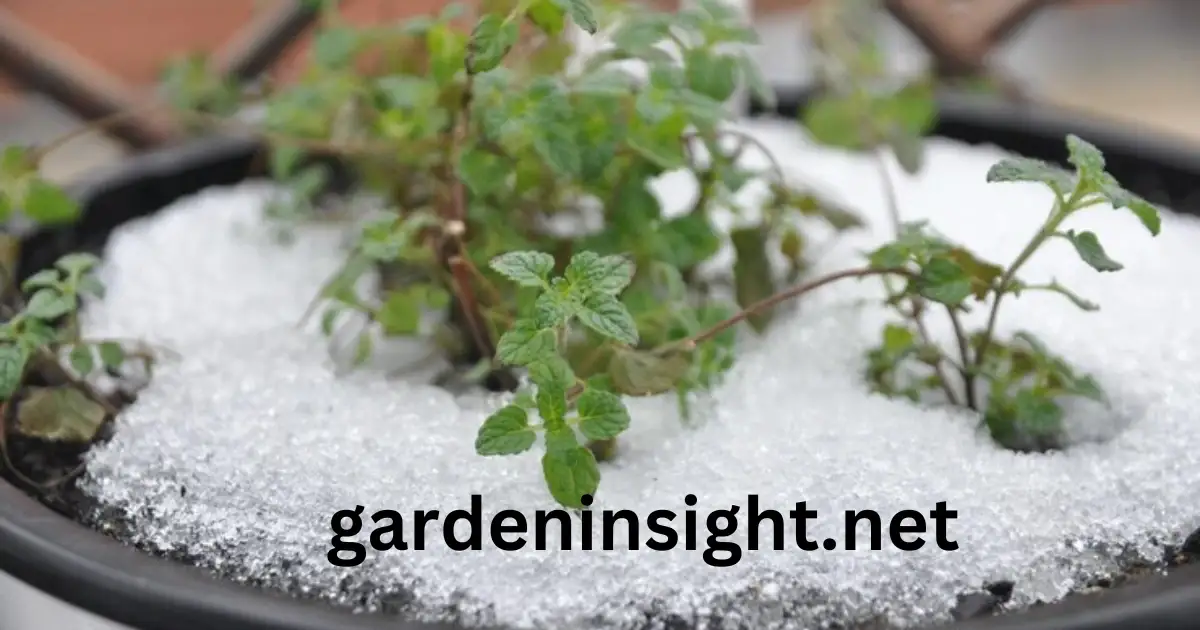Epsom salt for gardening, a natural mineral compound of magnesium and sulfate, is a popular choice for thriving garden and is a common household item with various uses, including gardening.
While not a “salt” in the traditional sense, it provides essential nutrients that can benefit plant growth and overall health.
Known for its potential to enhance plant growth, improve soil health, and deter pests, Epsom salt for gardening can be a simple yet effective addition to your garden. Learn proper ways to apply onto your plants for better assimilation and growth.
Role of Epsom Salt for Gardening in Plants
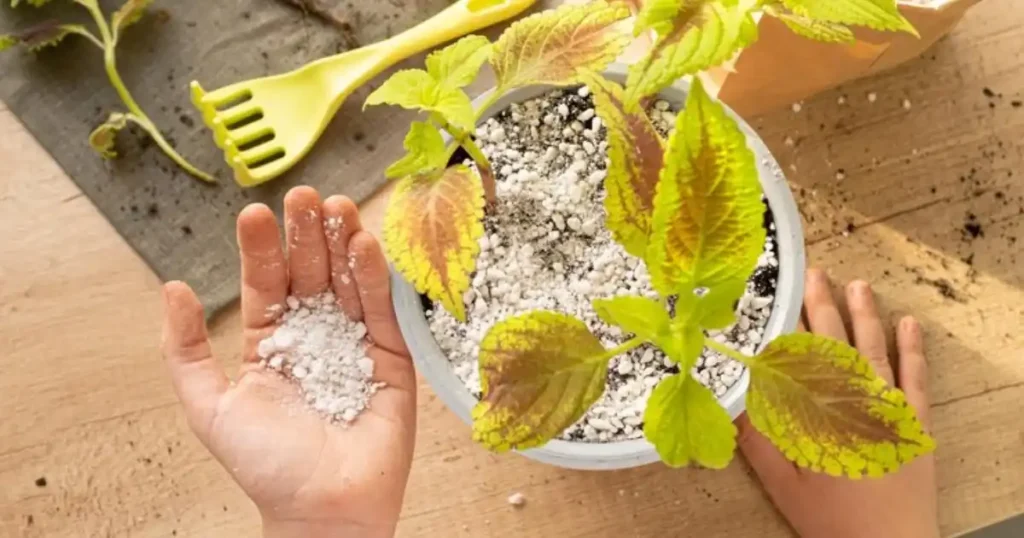
- Boosts Nutrient Absorption: Magnesium in Epsom salt improves plants’ ability to absorb nutrients like nitrogen and phosphorus.
- Promotes Greener Leaves: Magnesium is essential for chlorophyll production, resulting in vibrant green foliage.
- Encourages Flowering and Fruit Production: Sulfate in Epsom salt supports healthy flowering and fruit development.
- Reduces Plant Stress: It helps mitigate stress caused by drought or transplanting.
How Often Epsom Salt for Gardening Should Be Used?
The frequency of application depends on the plant type and its specific needs:
| Plant Type | Application Frequency | Dosage |
|---|---|---|
| Flowering Plants | Every 2-4 weeks during blooming season | 1 tablespoon per gallon of water |
| Vegetable Plants | Once a month or as needed | 1 tablespoon per gallon of water |
| Rose Plants | Once a month during growing season | 1/2 cup around the base of the plant |
Can Epsom Salt Improve Soil Quality?
Epsom salt can enhance soil quality in several ways:
- Restores Magnesium Deficiency: It replenishes magnesium-deficient soil.
- Enhances Water Absorption: Helps soil retain water better, promoting healthier root systems.
- Balances pH Levels: Although not a primary pH adjuster, it may assist in slightly acidic soils.
Is Epsom Salt Safe for All Plants?
Epsom salt is generally safe but not suitable for all plants. Overuse can harm plants sensitive to magnesium or sulfate. Avoid using it on plants that thrive in nutrient-poor soils, such as succulents or cacti.
Best Way to Mix Epsom Salt for Plants
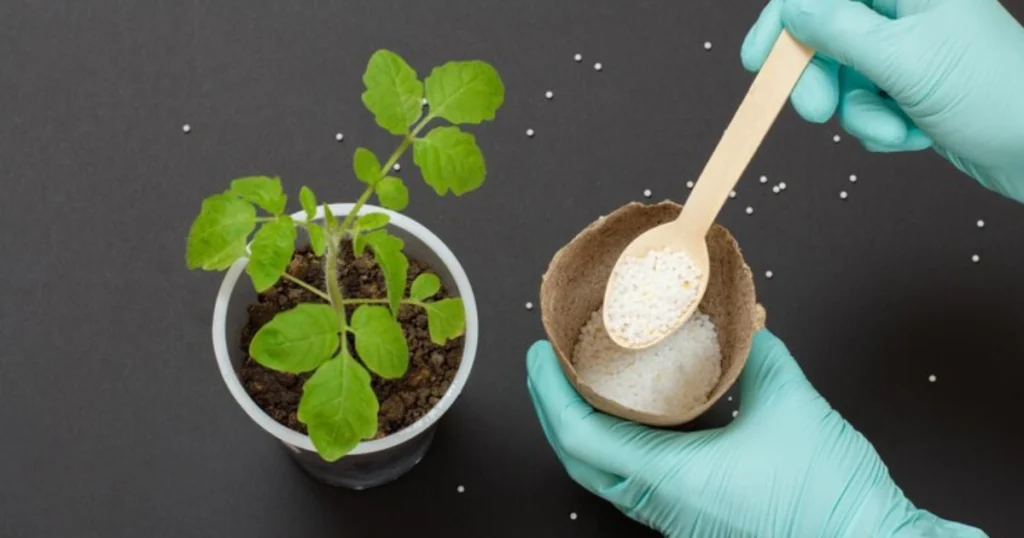
The ideal method for mixing Epsom salt depends on its purpose:
- For Foliar Sprays: Mix 1 tablespoon of Epsom salt per gallon of water. Spray directly on leaves for faster absorption.
- For Soil Application: Dissolve 1 tablespoon in water and pour at the base of the plant.
- Dry Application: Sprinkle a small amount around the base, ensuring it does not touch the stem directly.
| Application Method | Epsom Salt Concentration |
|---|---|
| Soil Application | 1 tablespoon per gallon of water |
| Foliar Spray | 2 tablespoons per gallon of water |
| Soaking | 1 teaspoon per gallon of water |
How Does Epsom Salt Help Plants Grow?
Epsom salt supports plant growth by improving nutrient uptake, enhancing photosynthesis, and encouraging healthier blooms. It also reduces nutrient deficiencies, promoting robust plant development.
Can Epsom Salt Prevent Garden Pests?
While Epsom salt doesn’t directly kill pests, it can make plants stronger and more resistant to infestations. Some gardeners believe that Epsom salt can deter slugs and snails, although scientific evidence for this is limited.
Should Epsom Salt Be Used During Every Season?
Epsom salt is most effective during the growing and blooming seasons. Avoid using it in dormancy periods when plants require fewer nutrients.
How to Use Epsom Salt for Specific Plants
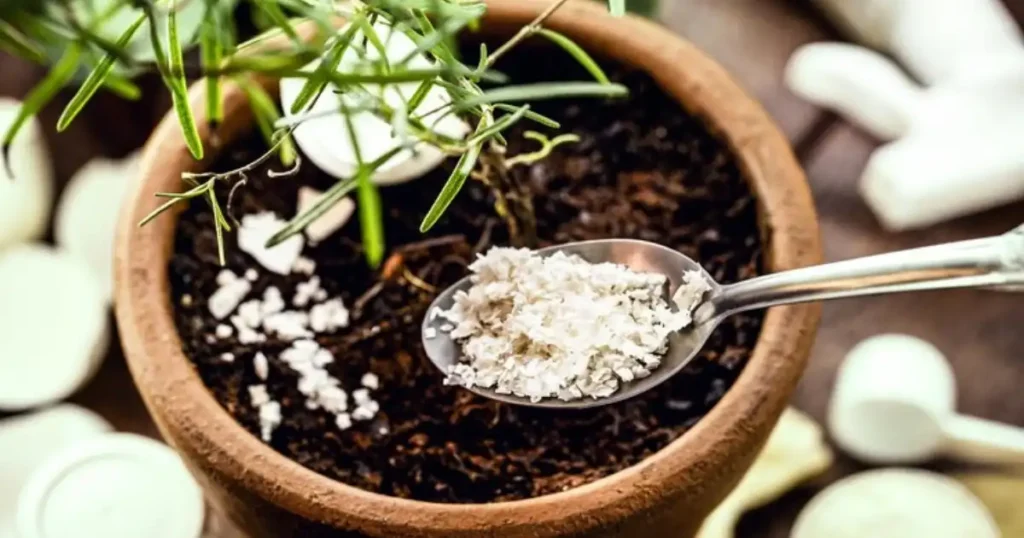
Proper usage of epsom salt for gardening of various plant types is given as follow:
Epsom Salt for Rose Plants
Apply 1/2 cup of Epsom salt around the base monthly during the growing season. This promotes larger blooms and greener leaves.
Epsom Salt for Flowering Plants
Dissolve 1 tablespoon in a gallon of water and use as a foliar spray every two weeks to encourage vibrant flowers.
Epsom Salt for Tomatoes
Mix 1 tablespoon per gallon of water and apply every two weeks to prevent blossom-end rot and improve fruit yield.
Epsom Salt for Pepper Plants
Use the same solution as for tomatoes. Pepper plants benefit from regular magnesium supplementation.
Improper Ways of Using Epsom Salt for Gardening
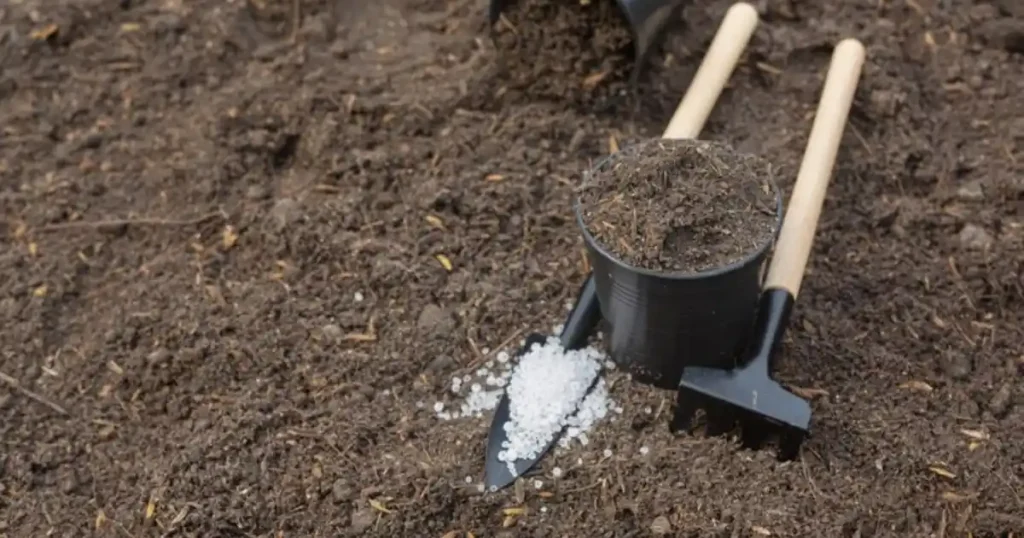
- Over-application: Excessive use of Epsom salt can lead to nutrient imbalances in the soil and harm plants.
- Applying to dry soil: Applying Epsom salt to dry soil can dehydrate plant roots. Always water the soil thoroughly after application.
- Ignoring soil tests: It’s best to conduct a soil test to determine if your soil is deficient in magnesium before applying Epsom salt.
Conclusion
Epsom salt for gardening is a valuable tool for gardeners looking to give their plants a natural boost.
By providing essential magnesium and sulfur, Epsom salt for gardening can enhance seed germination, improve nutrient absorption, promote lush foliage, and increase flowering and fruiting.
When used correctly, Epsom salt for gardening is a safe and effective way to support plant health and vigor. Remember to follow the recommended application methods and avoid over-application of Epsom salt for gardening to reap the full benefits of Epsom salt in your garden.
FAQs
Some of the frequently inquired questions about use of epsom salt for gardening are as follow:
What Plants Benefit the Most from Epsom Salt?
Plants like tomatoes, peppers, roses, and flowering varieties benefit significantly from Epsom salt.
Can Epsom Salt Damage Plants?
Excessive use may lead to nutrient imbalances or toxicity in sensitive plants. Use in moderation.
Is Epsom Salt Organic?
Yes, Epsom salt is considered natural and safe for organic gardening.
How Quickly Does Epsom Salt Work?
Epsom salt works within days for foliar applications and weeks for soil applications.
Can You Use Epsom Salt for Indoor Plants?
Yes, use it sparingly for indoor plants that show signs of magnesium deficiency.
